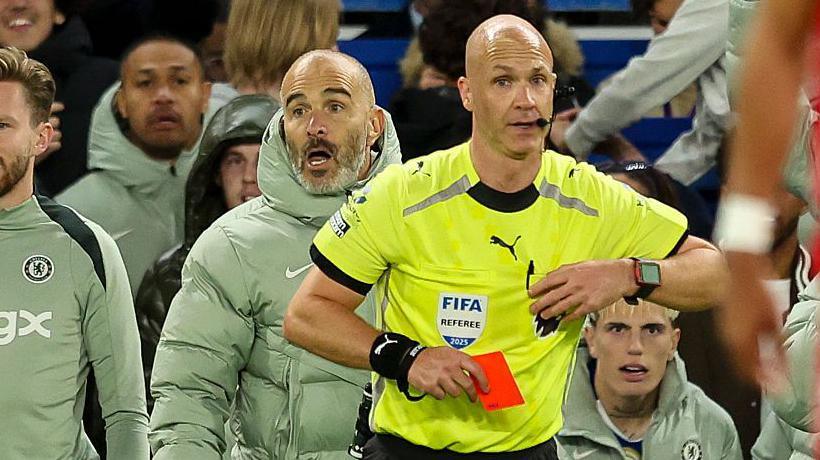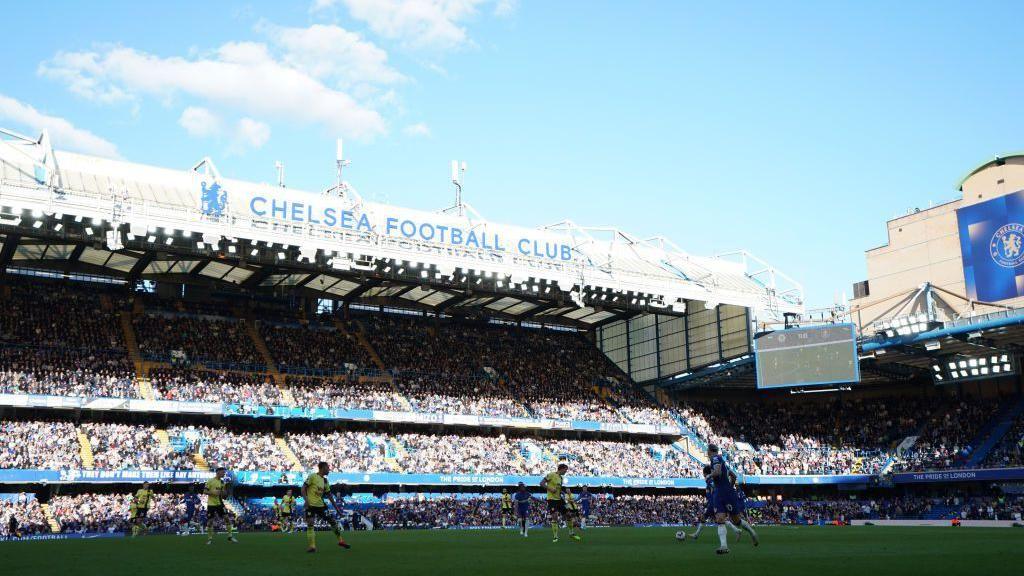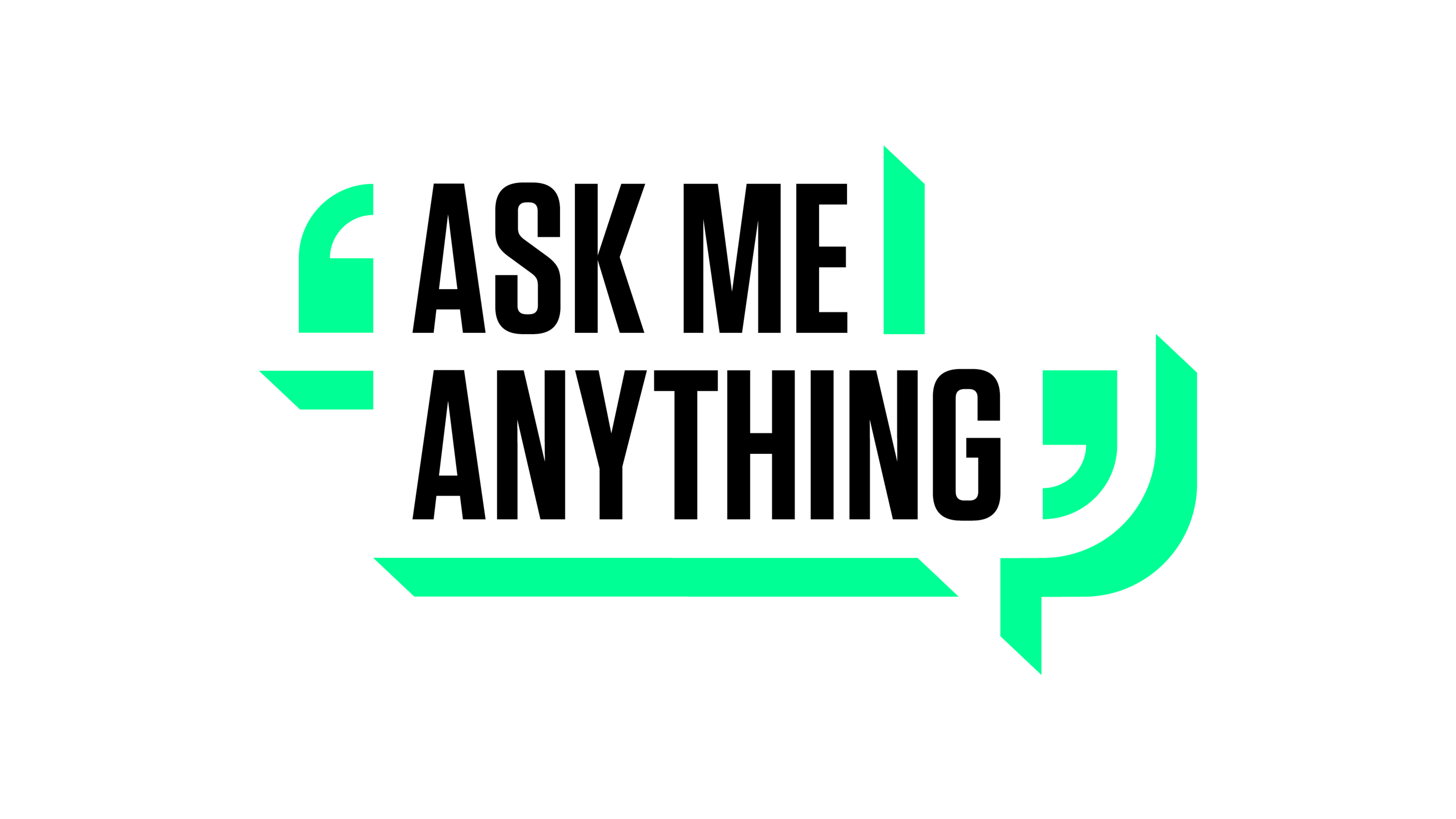Do Chelsea have a disciplinary problem?

Enzo Maresca was sent off for celebrating against Liverpool
- Published
It had no bearing on the result, but Malo Gusto's second yellow in the 87th minute of a 3-0 win at Nottingham Forest was another black mark on Chelsea's disciplinary record.
Including manager Enzo Maresca's dismissal against Liverpool a fortnight ago, Chelsea have received red cards in four consecutive matches across all competitions and five in six games.
Goals from Josh Acheampong, Pedro Neto, and Reece James secured an impressive victory at the City Ground on Saturday, a game which proved to be Forest manager Ange Postecoglou's final match.
For Chelsea, there will be reflection on why an already-poor disciplinary record from previous seasons has become worse.
Maresca has previously played down the issue and said his dismissal for celebrating the last-gasp winner against Liverpool was worth it.
After Saturday's he said: "Again, it's something that we can do better, but I'm not concerned.
"Some of you might say, why is he not concerned? I'm not concerned, because I like to analyse."
He went on to explain that Gusto's red card could have been avoided but that "the desire of the players is important" and is shows the French full-back did not want to allow Forest to score, even at 3-0 up.
Maresca will be aware that the data from this season and beyond tells a damning story.
From bad to worse
Chelsea's red cards this season began with goalkeeper Robert Sanchez's rash last-man challenge in a defeat at Manchester United. Trevoh Chalobah's mistimed tackle on Diego Gomez at home to Brighton also then cost Chelsea as it sparked dismal collapse.
Joao Pedro was sent off for a second yellow against Benfica for a high boot, Maresca was banned for celebrating Estevao Willian's last-minute winner at home to Liverpool, and Gusto was sent off on Saturday.
Those last three cases, at least, had no impact on the final result.
In response to Joao Pedro's dismissal, Maresca said: "You must analyse case by case.
"When it's a red card for bad intention or for bad discipline, it is different compared to the Manchester United red card or Brighton red card.
"In that case, it's just the decision that you have to take in two seconds, three seconds. Do I do foul or not? It is difficult. So we analyse case for case. Even if we concede [a total of] four red cards, it is not something normal because, again, it is for different reasons."
In addition, Chelsea have other worrying signs this season:
The Blues's only booking-free game was against Liverpool earlier this month
Chelsea are bottom of the Premier League Fair Play table with 29 points (one per yellow, five per red)
They have 17 yellow cards and three red cards accumulated so far
Their five yellow cards and one red in the 2-1 defeat at Manchester United, resulted in a £25,000 fine
The broader picture from previous seasons is even more concerning.
A historic issue for Chelsea
Historically, Chelsea's disciplinary problems have been poor under current ownership as they break records for yellow cards and they are bottom of the combined Fair Play table since 2022-23 .
In 22-23, Chelsea accumulated 86 points in the Fair Play table (sixth-most in the Premier League) and in 23-24 they had 117 under former manager Mauricio Pochettino, including a Premier League record 105 yellow cards.
That was followed by a 106-point season under Maresca to finish second-bottom in the table.
A total of 301 yellow cards is the most in the Premier League over three years.
Meanwhile, 12 red cards place Chelsea second behind Wolves (13) over the same period.
Under Maresca, Chelsea are a team that look to control games through possession and clever pressing, but it is notable to break down what Chelsea have received bookings for since 2022-23:
Tactical fouls: 89 (highest in the Premier League)
Reckless offenses: 89 (second, behind Crystal Palace)
Dissent/arguments: 67 (highest)
Time-wasting: 38 (second, behind Aston Villa)
Diving: Seven (highest)
Excessive celebration: Four
A total of 113 of their 301 yellow cards have come in the final 15 minutes of matches.
In that time Chelsea have had 15 cards for dissent (fourth most), 10 for arguments (joint-third most) and two for simulation (joint-most).
The trend of yellow cards, 2.8 per game under Pochettino and 2.6 under Maresca, highlights that it could be more than a tactical issue and may be linked to how a youthful squad built under Todd Boehly and Clearlake Capital handle their emotions.
The average age of the Chelsea squad is just over 24 years of age and, on Saturday, Maresca named the youngest XI in the Premier League so far this season.
The question now is whether Maresca can resolve the issue? His low-hanging fruit would be to ensure his players get fewer bookings for dissent and poor behaviour on the pitch.
It may take Chelsea simply becoming a better team to avoid receiving bookings for reckless offences and tactical fouls while the squad may naturally mature over time as they build their experience together.

